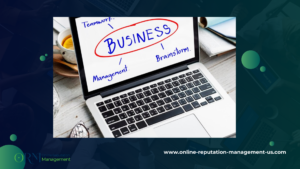Taking care of your personal reputation management is very important today because of the internet. Many people share information online, which makes it easy for others to form opinions about you based on what they find. A strong online presence can help you show your best side and maintain a good image. This informative content on what is personal reputation management is will give you simple tips and steps to help you manage your reputation well and confidently.

Taking care of your personal reputation management is very important today because of the internet. Many people share information online, which makes it easy for others to form opinions about you based on what they find. A strong online presence can help you show your best side and maintain a good image. This informative content on what is personal reputation management is will give you simple tips and steps to help you manage your reputation well and confidently.
Define Your Personal Brand
The first step in managing your reputation is figuring out your brand. Think about how you want others to see you. Your brand should be genuine and show who you are, what you have done, and your goals. Look at successful people in your area and check their online presence. This can give you ideas for creating your own image.
Claim Your Social Media Profiles
Social media is a strong way to build your online presence. With almost 5 billion users worldwide, being active on these platforms is important. If you don’t have one, start by creating a LinkedIn profile. LinkedIn helps you connect with people in your field and is easy to find in search results.
For other platforms like Facebook, Twitter, or Instagram, choose a username that includes your name. If you need more time to use these accounts, make them private until ready. Having an unused account can make people view you negatively online.
Create a Personal Website
A personal website can create a good first impression. It lets you share your background, achievements, and interests. Pick a simple domain name, like [yourname].com. If that name isn’t available, try a similar name that includes your name.
Your website can be simple or more detailed. A basic site might have an “About” page, your resume, and links to your social media profiles. A fancier site can include a portfolio, media features, and a blog.
Delete Irrelevant Content
Old online content can hurt your reputation. If you have old profiles or posts you don’t want people to see, it’s best to delete them. For example, if you have an old Tumblr account, consider removing it or the content you don’t want linked to your name.
If you can’t delete them, make those accounts private. This way, people can’t see the content, even if it appears in search results.
Keep Personal and Professional Separate
It’s important to keep your personal and work life separate online. What you share with friends might not be okay for work. Different jobs have different rules. For example, entertainers might share more personal things than business workers.
Think carefully about what you want to share online. Remember that some details about your life should stay private.
Maintain Your Privacy
Even though sharing is common, you don’t have to share everything about yourself. Be careful about what you post online. Ask yourself if you would feel okay with a stranger knowing certain things about you. If you wouldn’t, it’s better to keep that information private.
Seek Content Opportunities
Making content boosts your online presence. Writing a blog or making videos about your knowledge can attract more people and show that you’re trustworthy. If blogging or videos aren’t your thing, consider getting featured in interviews, articles, or podcasts.
Connect with other creators in your area and look for chances to share your knowledge. You can use tools like HARO (Help a Reporter Out) to find opportunities for good media coverage.
Know When to Ask for Help
Managing your reputation can be hard, especially if you’re busy or have a tough time. If you need help improving your online presence, consider hiring a reputation management company. They can help you understand your situation and make a plan to improve your reputation online.


Frequently Asked Questions:
Q 1. Why is personal reputation management important?
Ans. Personal reputation management is important because it shapes how people view you online. A strong reputation can help with career opportunities and personal relationships.
Q 2. How can I start building my online presence?
Ans. Begin by defining your brand and creating social media profiles. You can also start a personal website to showcase your achievements and interests.
Q 3. What should I do if I find negative content about myself online?
Ans. You can delete the negative content or set those accounts to private. If the content is beyond your control, consider creating positive content to push the negative results down in search rankings.
Q 4. When should I consider professional help to manage my reputation?
Ans. If you are struggling to manage your reputation on your own or facing a reputation crisis, it’s wise to seek help from reputation management firms. They can provide the expertise needed to improve your online image.
Recap:
In the end, you can build a positive image by defining how you want to be seen, keeping some details private, and engaging actively online. If it feels overwhelming, don’t hesitate to seek help from the best reputation management companies. With smart choices and planning, you can enhance your online presence and create a reputation that benefits your personal and professional life. Happy Searching!





